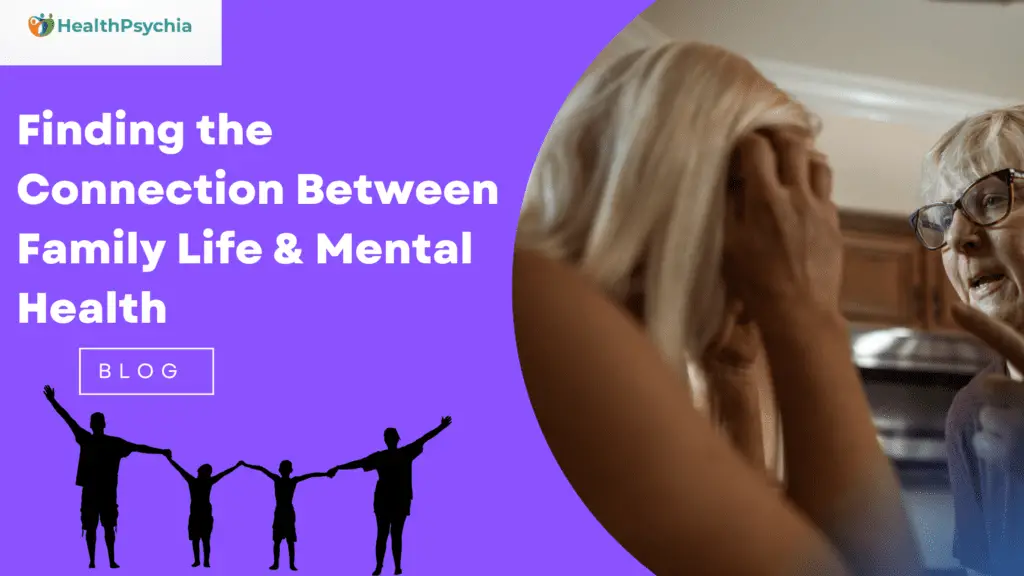Behavioral health is an asset that ensures the success of your life. The ability to launch businesses, excel in your career or academics and travel the world.
You can even do leisure activities are all based on whether or not your body is strong enough to endure these goals’ physical and mental exertion.
“Health is wealth” is a common proverb that we often hear regarding our lifestyle choices or how we treat our bodies. While it may sound redundant and overused, these words have plenty of truth.
In this article, we’ll understand what behavioral health means and discuss a few positive habits that can ensure a healthy mind, body, and soul.
Understanding Behavioral Health
Behavioral health is described as including the behaviors and emotions that affect the overall well-being of an individual. It is often synonymously used to describe mental health.
Centers For Diseases Control And Prevention (CDC) defines mental health as;
“Mental health includes our emotional, psychological, and social well-being. It affects how we think, feel, and act. It also helps determine how we handle stress, relate to others, and make healthy choices.”
Healthy behaviors can prevent a lot of illnesses. It promotes bodily regulation, ensuring we feel our best regarding our physical and mental health.
In modern times, there has been a growing trend of ensuring excellent physical health. We see individuals promoting going to the gym and eating healthy on social media, including many greens in their diets.
It is considered the “growth” era of an individual’s life.
However, we have yet to see a vast promotion of positive mental health behaviors. Regarding our mental health, it is essential to incorporate activities that make us feel happy, content, and at peace.
It is necessary to ensure that you validate your emotions and feelings and that appropriate measures are taken to self-comfort.
Determining the pillars of “good” mental health is vital to improving our emotional and psychological health. The following are some behaviors to adopt that are proven helpful.

Behavioral Health-Improving Physical Health Behaviors
A common symptom of most psychological disorders is constant fatigue or lack of energy. This prevents many individuals from taking proper care of their physical health.
It would help to consume nutritious meals that give your body the essential nutrients to recover from daily exertions.
Forming a habit of indulging in workouts at least four times a week ensures that your hormones are regulated, allowing an individual more control over their moods.
Moreover, a proper sleep schedule ensures that the individual is devoid of emotional reactivity and clears the mind to promote objective thinking.
Changing Defense Mechanisms
Humans tend to focus more on the negative aspects of life. The lack of resources-especially among individuals who have experienced a lack of attention, love, and positive situations- urges us to focus on negative emotions such as fear, anxiety, or sorrow.
Practice changing this defense mechanism to focus more on the positive aspects of life. View negative situations as a chance to grow and learn constructively.
In difficult times, look for the light on the horizon. Use humor to release negative emotions and give a positive spin to every event.
Maintaining Social Connections
Humans are social animals. Our desire to love, be loved, feel cared for, and be connected is as natural as breathing.
Poor mental health or psychological disorders can lead to individuals isolating themselves from others- whether it’s because they assume they are unworthy or incapable of normal social functioning.
Loneliness can drive individuals into a dark pit. It is essential to maintain healthy social connections to fulfill the natural need for companionship.
Befriend individuals that bring positivity into your life. They bring fresh perspectives and share their deep ideologies to expand your mind.
Open yourself up to love, connection, and a chance to find happiness.

Regulating Your Emotions
Having control over your emotional state is what emotional regulation is all about. It is a skill that ensures individuals maintain healthy emotions, thoughts, and behaviors.
Many manifestations of psychological disorders show faulty emotional regulation and thought processes.
If we develop healthy emotional regulation, we can reduce feelings of sadness and fear to replace them with excitement and happiness.
The more we regulate, the more we become in tune with our mental health and can establish thought processes compatible with reality.
Accepting Yourself
The person you will spend the most amount of time with is you. It is essential to get to know yourself and be your cheerleader.
High self-esteem prevents many behavioral health issues. You can promote high self-esteem by fixing your self-concept.
Stand in front of a mirror and pick out everything that you love about yourself. Count your attributes and qualities, the value you bring to your relationships, your smartness, and your skills and hobbies.
Remind yourself of your kind, compassionate, and forgiving nature. List every single physical and behavioral attitude that you adore in yourself.
By doing so, you will soon observe the negative emotions of sadness, depression, and anxiety fade away to replace with confidence, self-love, and self-respect.
Behavioral Health-Easy Way To Adopt Healthy Habits
Informing others about the importance of developing positive health behaviors is far easier said than done. However, you can use this Transtheoretical Model of health behavior change to make the change that your desire;
- Precontemplation: The individual is oblivious to the problem at hand.
- Contemplation: The individual becomes aware of the issue and begins considering changing.
- Preparation: The individual researches the issue and how to solve it. They start taking small steps to achieve the change that they want.
- Action: The individuals start taking significant, huge steps to lead themselves toward the ultimate goal.
- Maintenance: Once the initial rush of achievement dies down, the individual continues to focus on maintaining the healthy habits formed.
- Relapse: The individual might fall back into their old habits, feeling guilty and ashamed.
Conclusion
It is important to remember that a relapse does not mean you cannot achieve your goal. It took time to develop unhealthy habits; similarly, it will take time to overcome them.
Take your relapse as a chance to recover and come back stronger. If you did it once, you could do it again.
Prioritizing your physical, mental, emotional, and social well-being will bring more incredible benefits than imagined. It will ensure you live a fulfilled life, surrounded by love and feeling peaceful no matter the situation.


